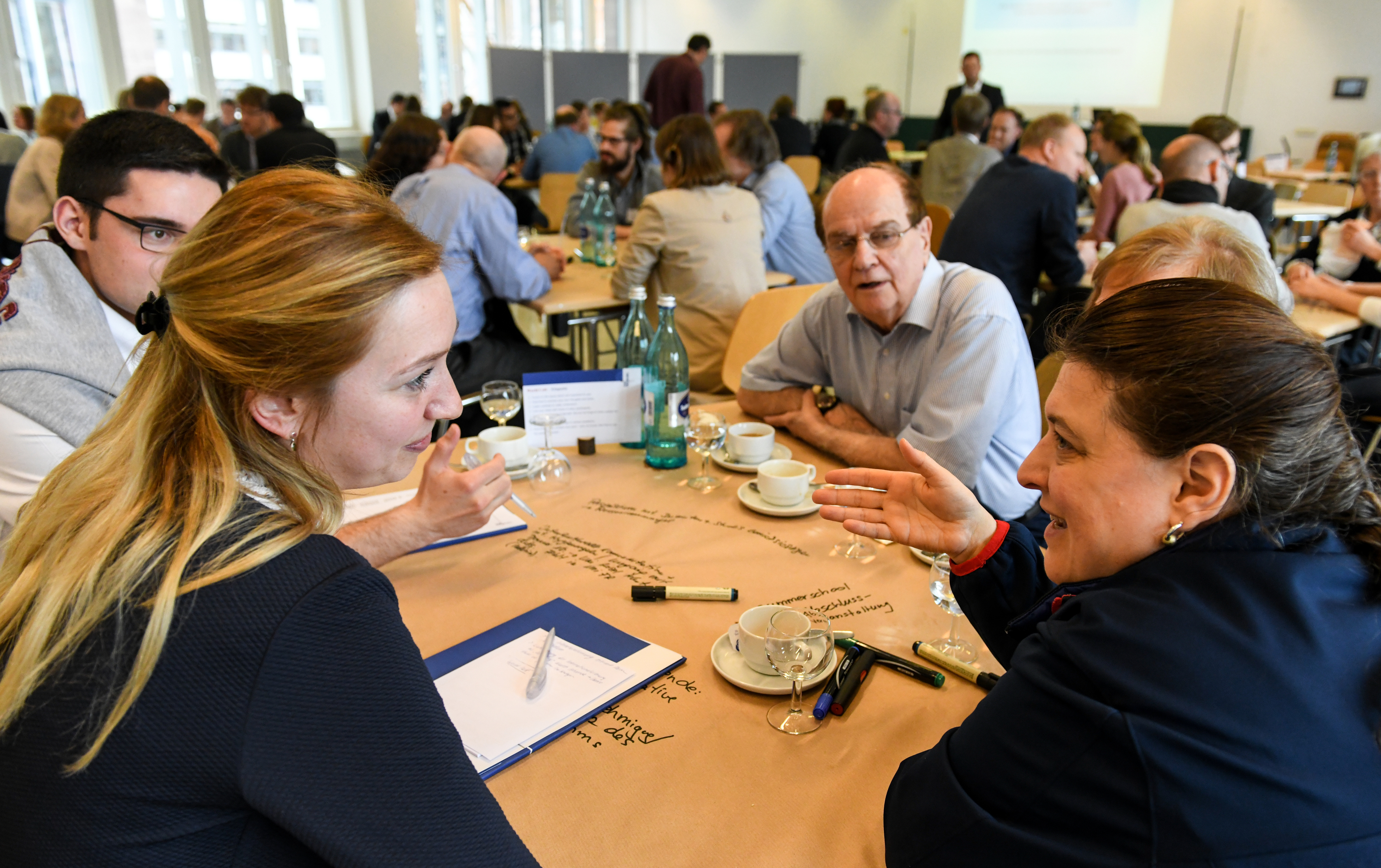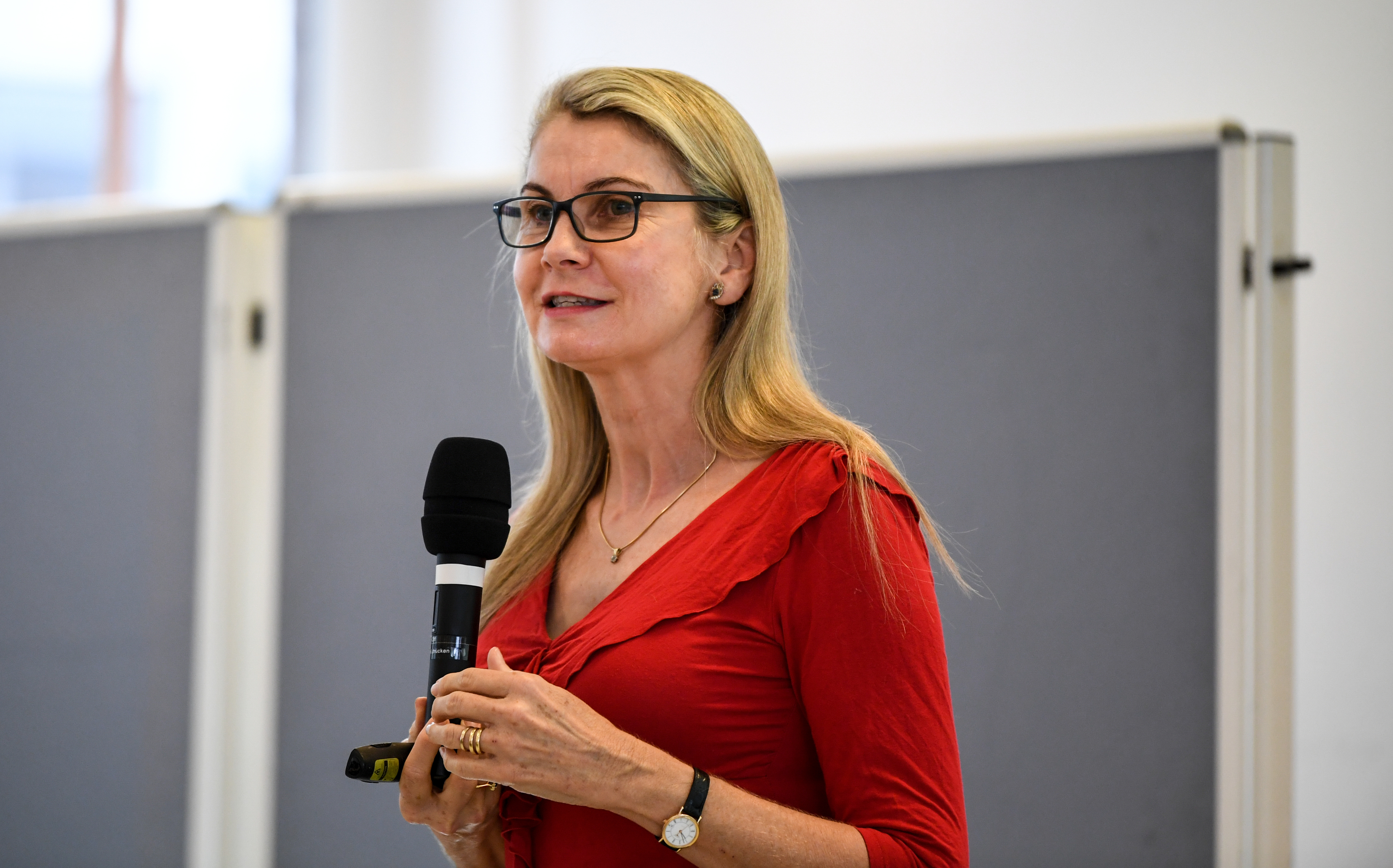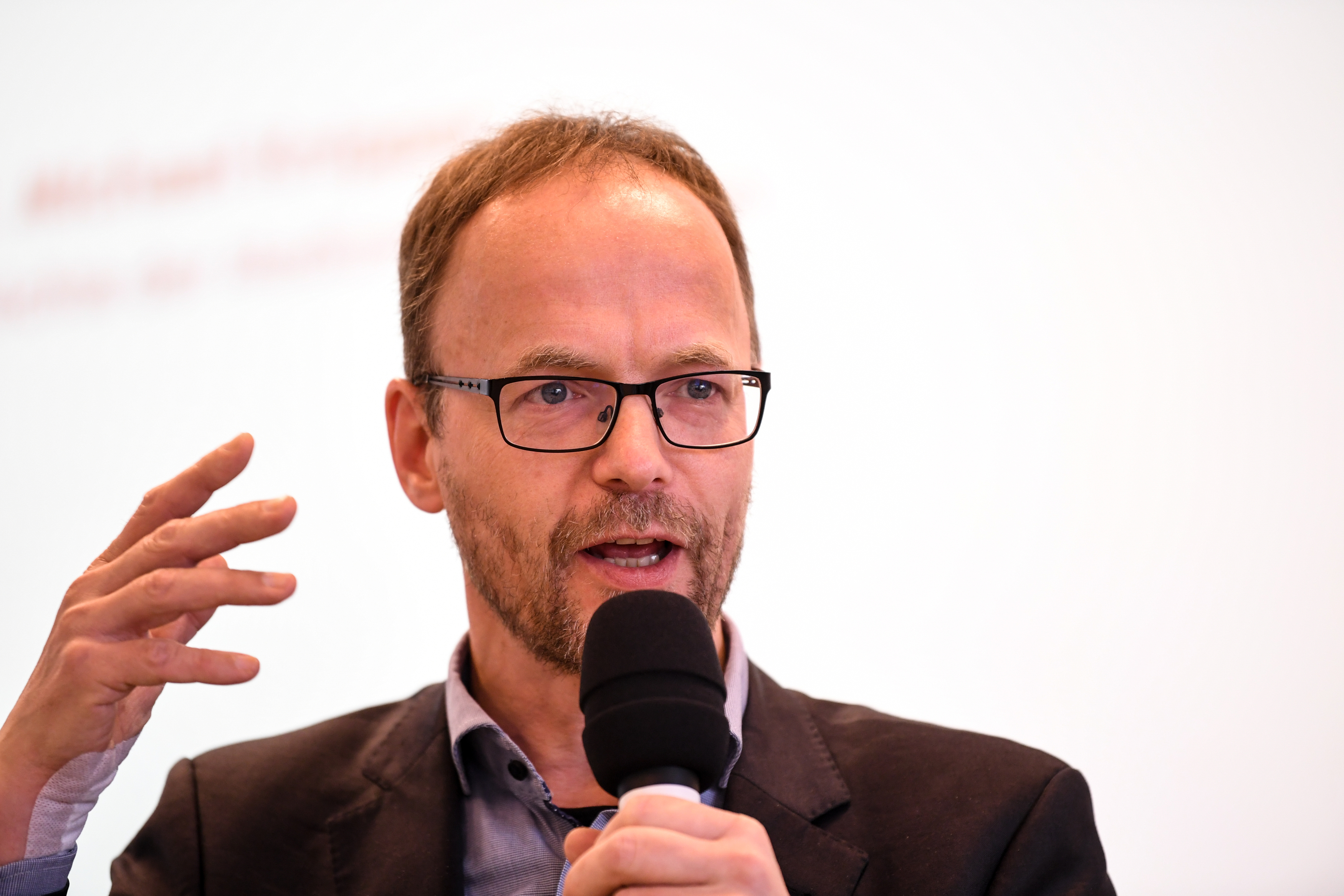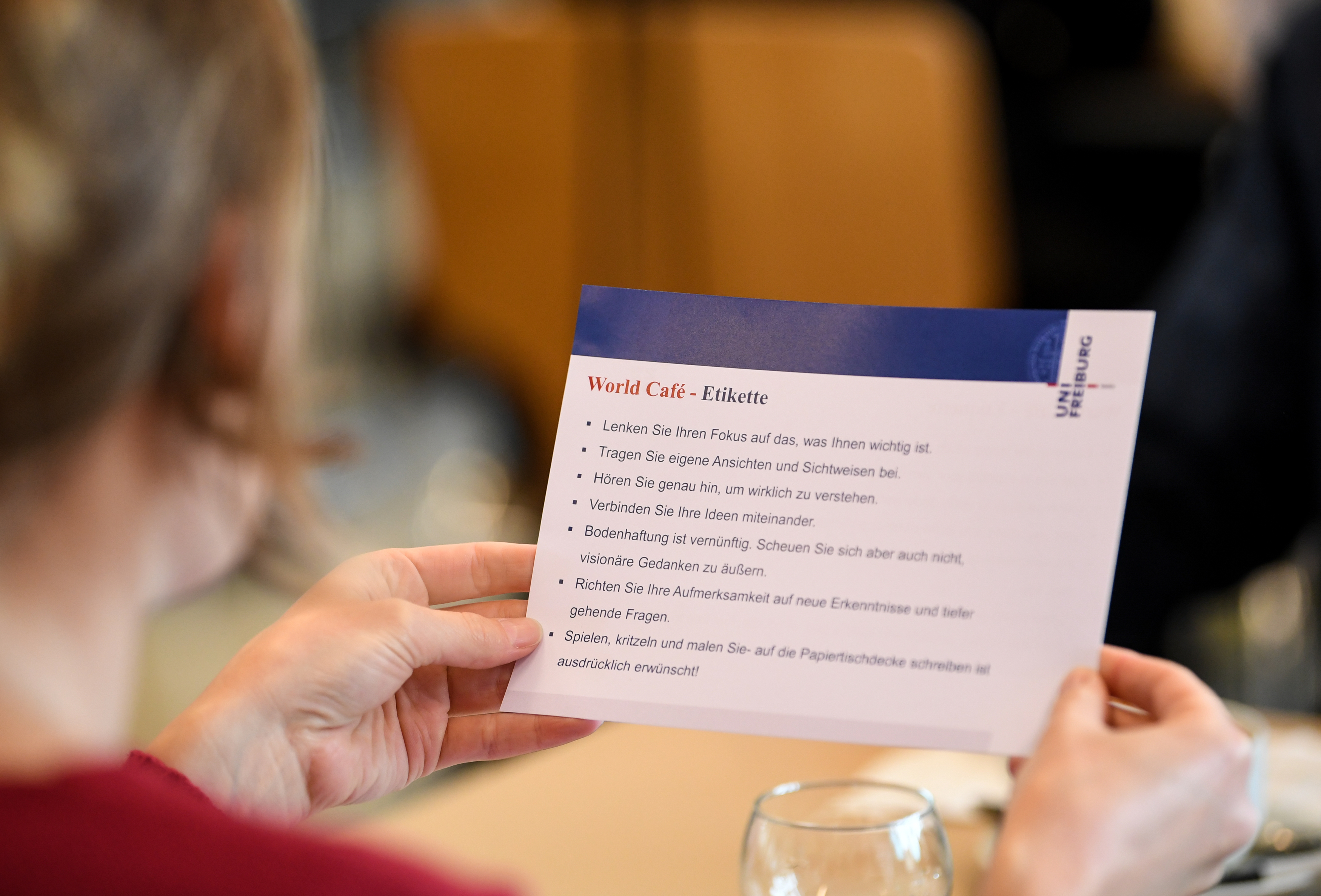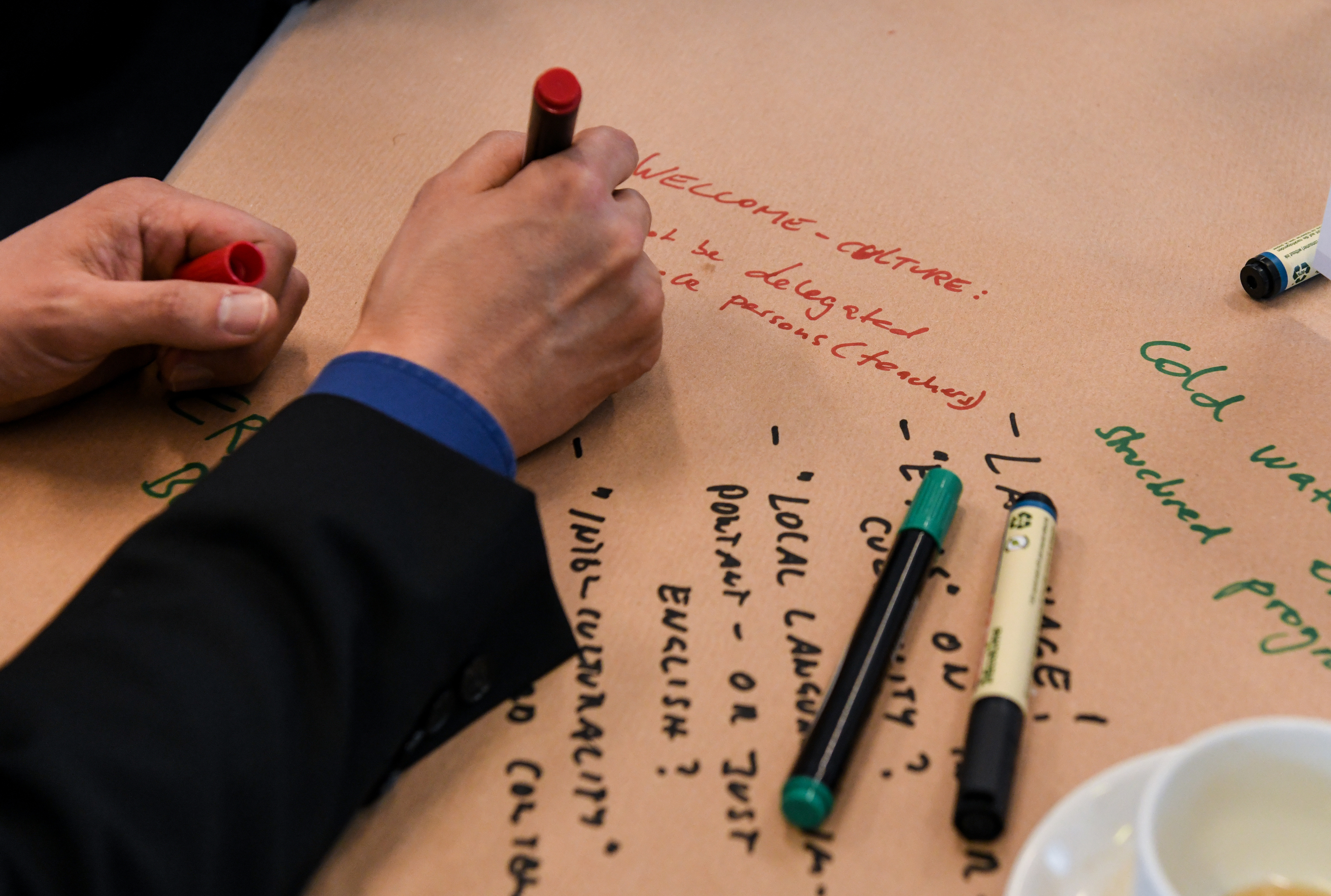Tag des Internationalen Lernens und Lehrens
Es war ein prall gefüllter Tag: Grußworte des Rektors Hans-Jochen Schiewer und der Prorektorin für Studium und Lehre Juliane Besters-Dilger sowie zwei inspirierende Keynotes gaben den Startschuss in den Vormittag, gefolgt von einer interaktiven Diskussion der Teilnehmerinnen und Teilnehmer im Worldcafé. Nachmittags boten sechs verschiedene Themensessions einen vertieften Einblick in ausgewählte Facetten von internationalem Lernen und Lehren. In den Pausen zeigte eine Posterausstellung bereits etablierte Projekte und Good Practices. Auch die Fachabteilungen der Universität Freiburg mit ihren Services zu internationalem Lernen und Lehren waren auf diesem Marktplatz der Ideen präsent.
|
Fotos: Patrick Seeger |
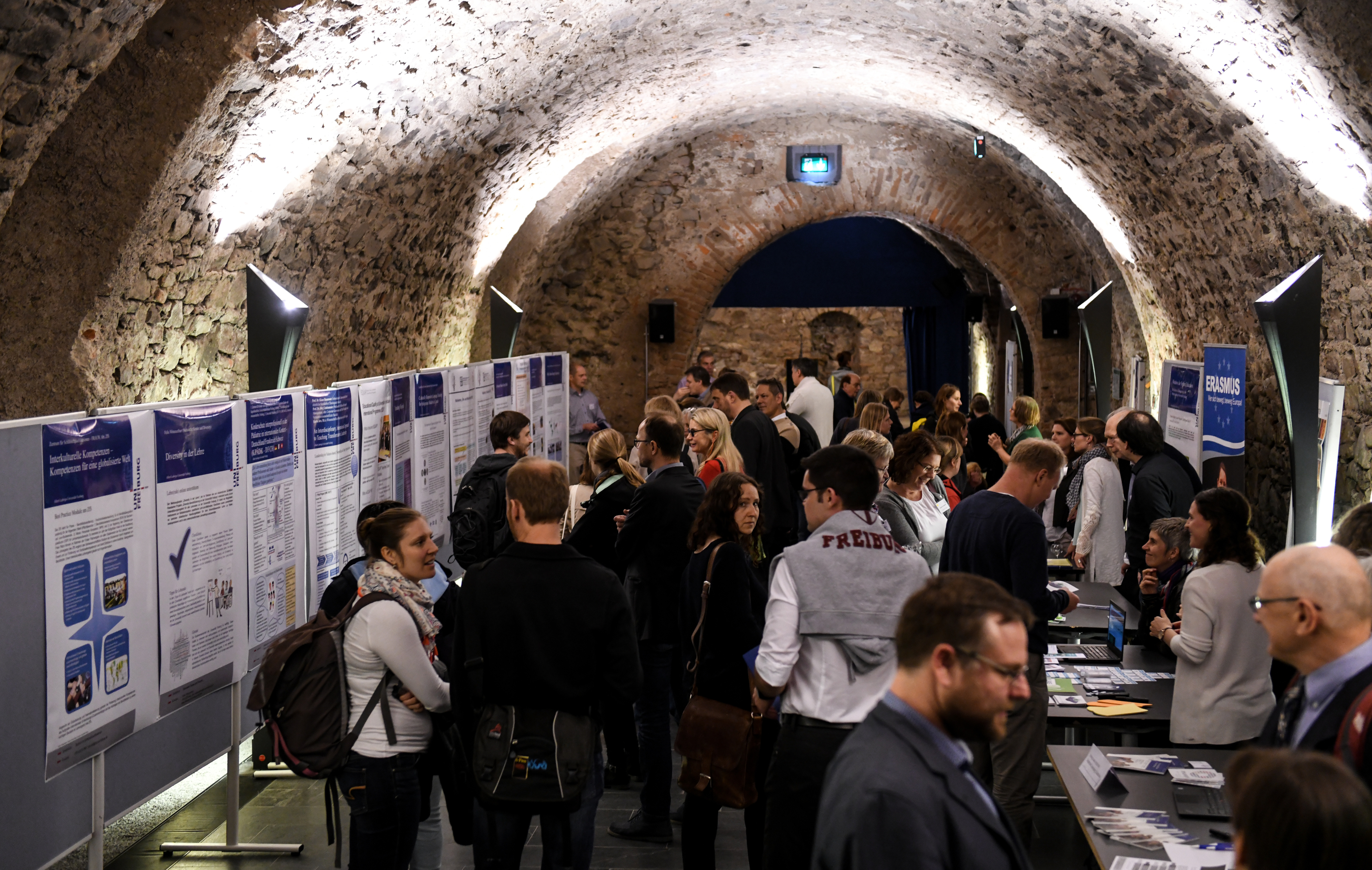 |
Nicht zuletzt hat die finale Podiums- und Plenumsdiskussion gezeigt: Um die Breite des Themas zu erfassen, ist eine einzige Veranstaltung bei weitem nicht genug. Wenn Sie auch in Zukunft internationales Lernen und Lehren an der Universität Freiburg mitgestalten möchten, dann senden Sie Ihre Interessensbekundung an: Kathrin Jehle, International Office / Strategy, kathrin.jehle@io.uni-freiburg.de.
Wer am 9. April 2018 nicht dabei sein konnte oder sich die Veranstaltung in Erinnerung rufen möchte, hat hier die Möglichkeit, einen Blick auf die Ergebnisse des Tags des internationalen Lernens und Lehrens zu werfen.
Keynotes
|
Michelle Barker, Griffith University, Australia Beyond alphabet soup: IoC, I@H, and the challenge of developing interculturally capable students |
|
|
Michael Knipper, Universität Gießen, Germany Was bedeutet die Internationalisierung der Curricula – zum Beispiel für die Medizin? |
Fotos: Patrick Seeger |
World Cafè
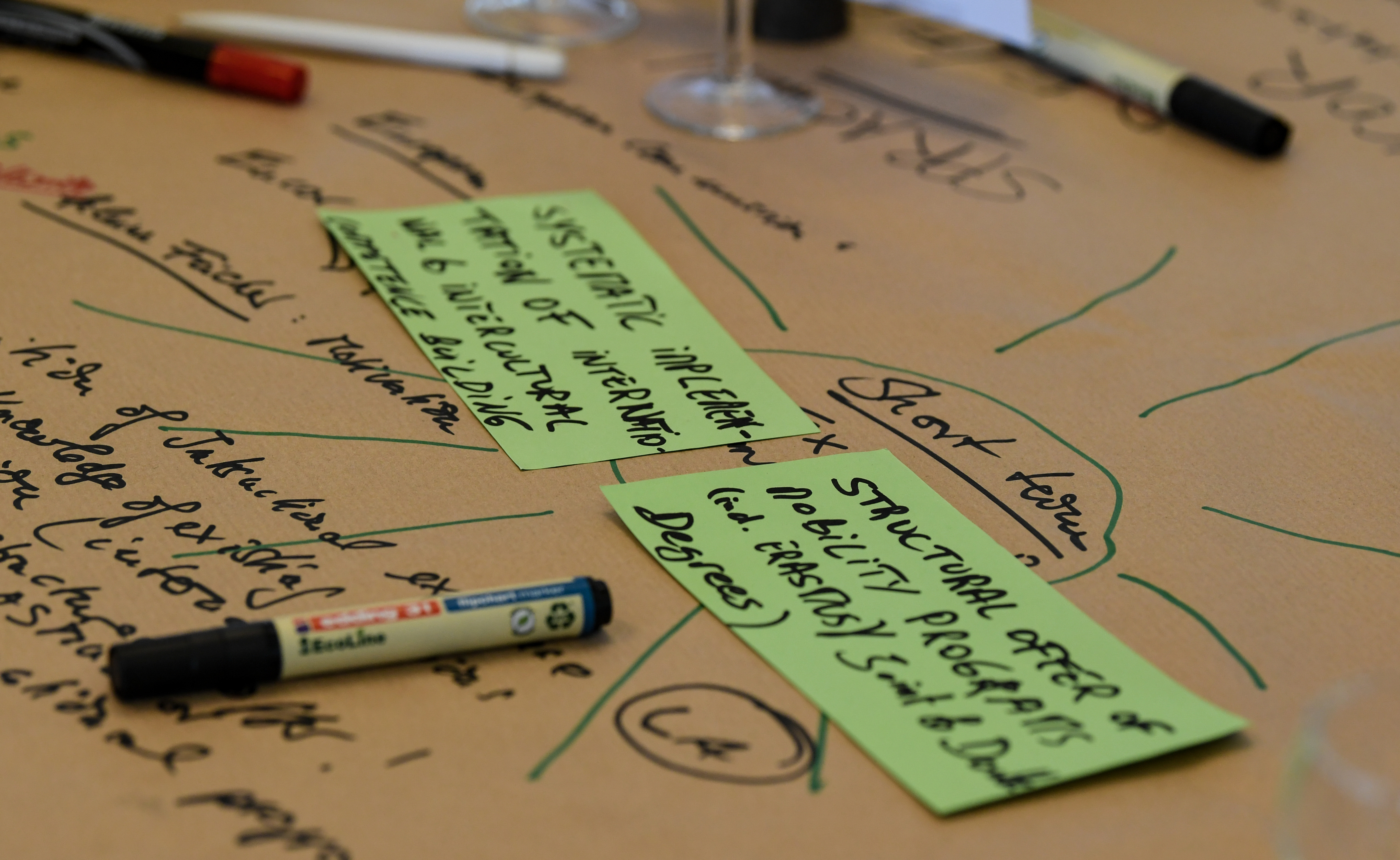 |
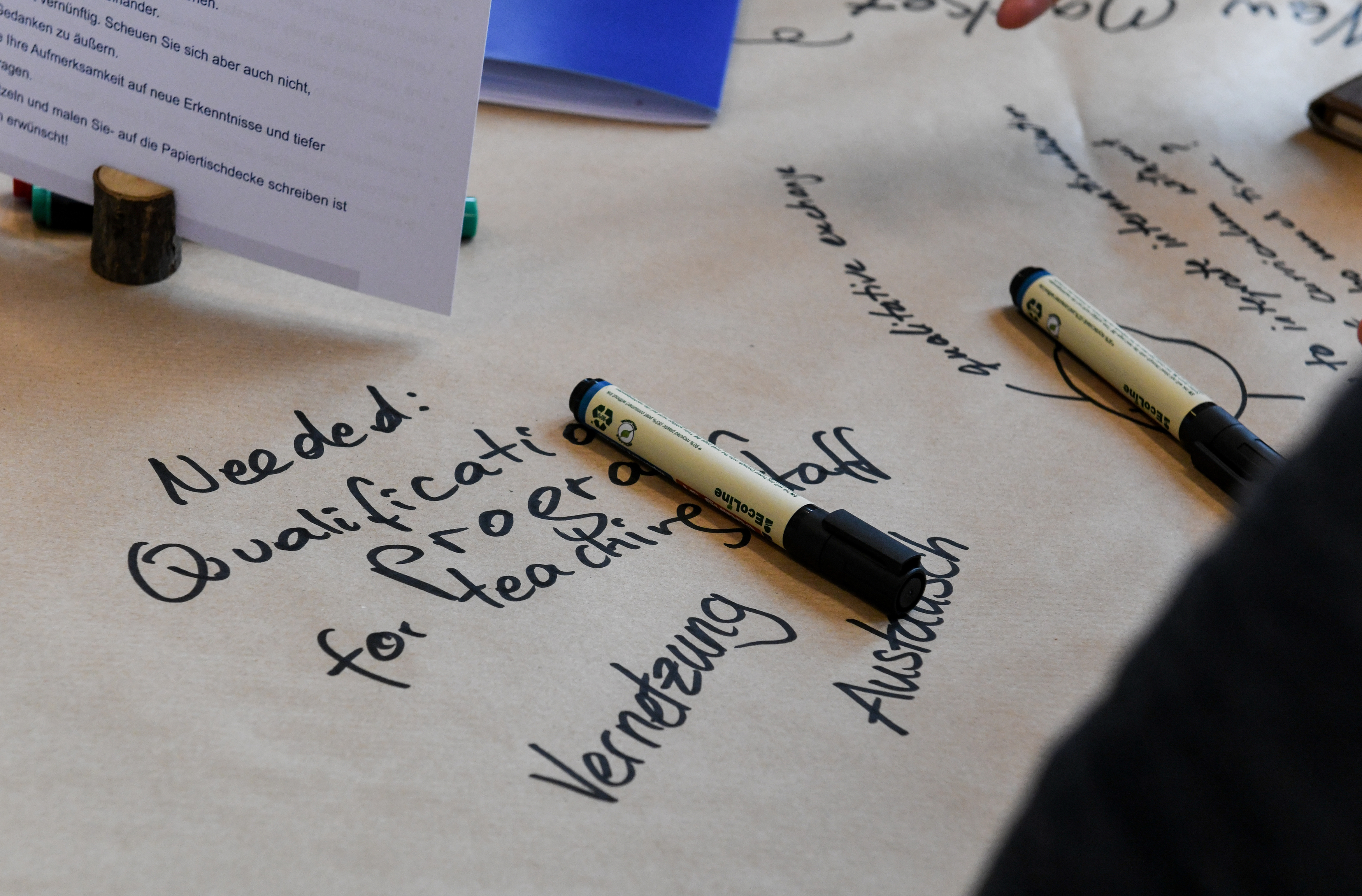 |
|
|
|
Fotos: Patrick Seeger
Sessions und Workshops am Nachmittag
1. Digitalization as a facilitator for change in higher education
Considering e-learning methods and tools as an opportunity to facilitate joint seminars or even joint study programs with partner universities worldwide, international learning and teaching could become easier than never before. What challenges should be considered and how can they be solved?
Präsentationen
2. International Learning and Teaching within Eucor – The European Campus
The partner universities of Eucor – The European Campus of the Upper Rhine region are neighbors. They can complement one another's learning and teaching by giving way to a intercultural perspective in different higher education systems in three countries at the same time. How is cooperation possible? Three consortia shared their experiences.
Präsentationen
3a. Internationalization of the Curriculum
How can an open and global perspective be integrated into the structure and the contents of a study program? What should the environment of such an international classroom be? Are spending one semester abroad and attracting students from all over the globe really sufficient measures for attaining that goal?
Both Maastricht University and the University College Freiburg shared best practices and experiences with participants.
Präsentationen
3b. English taught courses and their added value for the curriculum (BA and MA)
How can English taught courses bring added value to a study program? Which challenges are to be met if a program is offered completely in English? The English taught G30 study programs at Nagoya University serve as an international example.
Präsentationen
3c. Joint (Degree) Programs: definition, added value and how to
What is a joint program all about and what are its benefits? This session presented best practices and tools which will lead to a better understanding of developing and implementing joint study programs with partner universities. This session also tackled challenges related to awarding a joint or double degree.
Präsentationen
4. Teaching in the International Classroom
The session explored different styles of intercultural and international teaching. It had been designed as an interactive workshop especially for teaching staff and it also featured a short presentation of the Intercultural Mentoring Program.
Facilitators: Dorothea Rösch, Project "More success in the study entry phase. Interculturality and non-traditional students", Language Teaching Center Freiburg, Susanne Gundermann and Gregg Dubow, English Medium Instruction, Language Teaching Center Freiburg
Posterausstellung
- Arbeitsbereich Caritaswissenschaft und christliche Sozialarbeit und Lehrstuhl für Public and Nonprofit Management: “An Interdisciplinary, International Approach to Teaching Transformative Leadership“
- Department of North American Studies: “Culturally Responsive Language Teaching for Indigenous Students in Canada”
- English Medium Instruction EMI (Sprachlehrinstitut/Language Teaching Centre (SLI): “Professional Development and Training for Teaching in English with an International Student Body”
Services der Fachabteilungen der Universität Freiburg zur Unterstützung von internationalem Lernen und Lehren
- EU-Büro
- Freiburger Akademie für universitäre Weiterbildung (FRAUW)
- Interkulturelles Mentoring
- International Office und Justiziariat für Studium und Lehre
- Hochschuldidaktik
- Lehrentwicklung
- Psychosoziale Beratungsstelle
- Abteilung E-Learning


